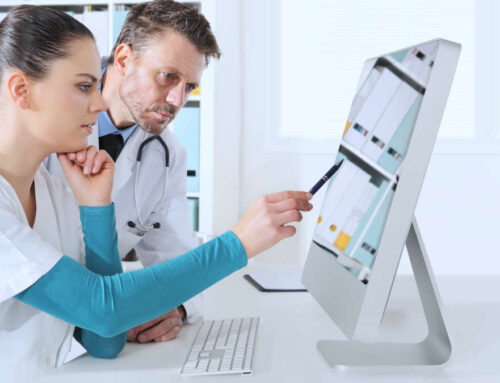The 63rd edition of the AFI Symposium has just concluded. Held from June 5 to 7, 2024, at the Palacongressi di Rimini, the event explored key topics in the pharmaceutical sector through various specialized sessions. Issues ranged from sustainability in the pharmaceutical industry to the complexity of the supply chain, from innovation in packaging materials to the growing importance of digital health. Here’s a session-by-session overview of what was discussed.
Session I – Energy and Sustainability
The first session delved into various aspects related to energy and sustainability in the pharmaceutical sector. Discussions focused on integrating environmental, social, and economic responsibilities into the daily activities of pharmaceutical companies, highlighting the importance of fostering a corporate culture that embraces responsible and ethical business practices. Present and future regulatory requirements were analyzed, and practical experiences of ecological efficiency projects in departments and laboratories were shared. The session underscored the fundamental and interconnected nature of safety and sustainability in the daily operations of companies in the sector.
Session II – Supply Chain
The Supply Chain session examined the growing complexities in the pharmaceutical sector that significantly impact supply chain management. As products, regulations, sales channels, and markets continuously evolve, the pharmaceutical supply chain faces new challenges in managing medicines post-production. Various aspects involving not only pharmaceutical companies but also downstream process operators, such as primary distribution through multi-mandate warehouses, intermediate distribution via wholesalers, transportation, and hospital and community pharmacies, were explored. These insights highlighted current challenges and the ongoing solutions to enhance efficiency and safety in the pharmaceutical supply chain.
Session III – Packaging Materials
This session presented various aspects related to the production, control, and use of primary and secondary packaging materials for medicines. Following an introduction on the general aspects of controlling and using these materials in medicine production, the session featured several presentations on specific topics related to the production and control of packaging materials. Key discussions included coupled materials for blister production, elastomeric closures, secondary packaging materials, and glass containers, providing a comprehensive and detailed overview of the challenges and solutions in the use and control of packaging materials in the pharmaceutical sector.
Session IV – Digital Health
The digital health session explored the impact of new technologies in the healthcare sector. The primary focus was on the increasing use of AI-based technologies and the introduction of digital therapies. The session highlighted the benefits of a multidisciplinary approach to evaluate these technologies from legal, technological, practical, and sustainability perspectives. Case studies, patient impact, privacy implications, and associated business models were discussed. The session provided an overview of the current market status, exploring the risks and opportunities associated with adopting these innovative technologies in the healthcare sector.
Session V – Clinical Research
The clinical research session discussed the benefits of introducing innovative and decentralized solutions in clinical trials. The effective use of wearable devices for data collection and remote monitoring was recognized for simplifying processes, reducing the burden on patients and clinical centers, and lowering costs. However, the significant impact of these transformations on sustainability was also emphasized. Presentations illustrated concrete examples of sustainability in clinical trials, highlighting recent methodological and regulatory changes. The discussions aimed to improve clinical studies, raising awareness among pharmaceutical companies, CROs, and regulatory bodies about the importance of designing and approving studies that benefit patients, hospitals, the healthcare system, and the environment.
Session VI – Quality
The quality-focused session addressed the implementation of quality systems in sectors other than pharmaceutical manufacturing plants. Various critical aspects of quality systems were discussed, including the importation of active pharmaceutical ingredients (APIs) and medicines, the distribution and transport of APIs and medicines, the production and distribution of medicinal gases, product development, clinical trial batch production, and the production of advanced therapies (ATMPs). A notable presentation by AIFA (Italian Medicines Agency) covered inspection and authorization aspects of these companies, highlighting the challenges and best practices in ensuring regulatory compliance and quality in the evolving pharmaceutical landscape.
Session VII – HTA
The HTA regulation, soon to be implemented, had its dedicated session. The primary objective of this regulation is to improve access to effective health technologies, ensuring uniform benefits for patients across all Member States. Nearly two years after its approval, the HTA will soon be applied in various States, including Italy. The session discussed the current state of HTA at both European and national levels, focusing on the Coordination Group and AIFA. The session explored the upcoming implementation phases, highlighting the significant initial impact the regulation will have on oncology drugs and advanced therapies (ATMPs). A central moment was the round table discussion, which took place exactly six months before the regulation’s entry into force, allowing a wide range of stakeholders to coordinate for the initiative’s success and the improvement of public health at both European and Italian levels.
Session VIII – Deblistering
The deblistering session addressed the highly relevant issue of unit dose preparation in pharmacies. This field presents significant risks and opportunities. Participants received a comprehensive overview of the topic, including a round table discussion that analyzed experiences and practices adopted in Italy and Switzerland.
Session IX – Environmental Risk Assessment
The main objective of the session was to provide an overview of the current scientific and regulatory approach and the significant changes anticipated by the new European directive on pharmaceuticals. The session began with a brief exposition on the historical scientific approach recommended since the first EMA guidelines in 2006. Practical and applicative insights in the current context were then offered. Finally, different approaches from European authorities were explored, highlighting variations in perspectives and methodologies.
Session X – AFI – SITELF Pharmaceutical Sciences
This session focused on the research and development of new therapeutic approaches for the treatment of endocrine diseases, with particular attention to diabetes therapy. Despite efforts in awareness and prevention, the number of people affected by diabetes continues to grow, especially type 2 diabetes, which accounts for over 90% of all diabetes cases and is often associated with other chronic diseases such as obesity, hypertension, and dyslipidemia. Clinical-pharmacological and social aspects related to diabetes were addressed, highlighting the importance of technological platforms, portals, chronotherapy, and new therapeutic approaches in treating this condition. Particular emphasis was placed on innovative drug delivery technologies and personalized pharmacological therapy for glycemic control.
Session XI – Biotech
The session explored the radical innovation represented by CAR-T, transforming treatment prospects for oncohematological diseases, solid tumors, and autoimmune diseases, conditions that until a few years ago had no effective solutions. CAR-T is revolutionizing medicine. The session featured leading experts in the field in Italy, discussing recent progress, technical and regulatory challenges, and future prospects for CAR-T in clinical practice. It was a crucial moment to understand how these technologies are radically changing the landscape of treating serious and incurable diseases.
Session XII – Pharmacovigilance
The pharmacovigilance session focused on the close correlation between quality complaints and their impact on patient health. It is widely recognized that problems or defects in drug quality can compromise patient health and therapy adherence. This topic was addressed through two technical presentations and a round table, aiming to discuss the processes involved and identify potential barriers. The importance of collaboration between Pharmacovigilance and Quality departments in managing the information necessary to fulfill legislative obligations was emphasized. AIFA’s presentation focused on good pharmacovigilance practices (GVP) and the necessary corrective actions to ensure the safety and efficacy of medicines.
Session XIII – Medical Devices
This session focused on the impact of the European Medical Device Regulation. The MDR introduced stricter harmonization criteria and restrictions for certifying new products, especially substance-based devices. Seven years after its publication, the benefits and disadvantages of the new regulation have emerged, with increased certification costs and longer, more uncertain times. This risk could limit innovation and reduce therapeutic options available to patients. The symposium highlighted the critical issues analyzed by the AFI Study Group and facilitated a discussion among various sector stakeholders to explore possible solutions.
Session XIV – Advertising and IMS in Healthcare
The session focused on the rules and opportunities related to advertising and medical-scientific information in the digital context. Pharmaceutical companies must comply strictly with the provisions of Title VIII of Legislative Decree 219/2006 when promoting their medicines to the public or healthcare professionals. However, the practical application of these regulations has highlighted various issues, both related to interpreting the rules and the wide range of digital tools available today. Additionally, the diversification of company products, ranging from medicines to medical devices, homeopathic medicines, and food supplements, introduces further regulatory complexities. The session aimed to present practical experiences from numerous companies in scientific information and advertising, illustrating the evolution of tools and promotion methods. This provided insights for a round table discussion with leading industry associations and the competent health authority to explore solutions and improvements in the application of regulations and the use of digital means for promoting health products.
Session XV – CRS – SITELF
The session explored the critical interactions between modified-release drug delivery systems and primary packaging materials, with a particular focus on new characterization techniques. Various key topics were discussed, including the surface properties of primary glass containers and the effect of steam sterilization on them. The integrity of the closure of pre-filled glass syringes for ultra-low temperature storage was evaluated. Additionally, the stability of mRNA carried in lipid nanoparticles in pre-filled syringes, crucial for effective mass vaccination against COVID-19, was examined. Another relevant topic was the analysis of leachables and extractables from primary plastic containers, with attention to scientific and regulatory aspects. The session concluded with a round table discussion with all speakers, followed by the annual meeting of the CRS Italy Chapter.
Session XVI – Parenterals
The session explored the critical interactions between modified-release drug delivery systems and primary packaging materials, with a particular focus on new characterization techniques. Various key topics were discussed, including the surface properties of primary glass containers and the effect of steam sterilization on them. The integrity of the closure of pre-filled glass syringes for ultra-low temperature storage was evaluated. Additionally, the stability of mRNA carried in lipid nanoparticles in pre-filled syringes, crucial for effective mass vaccination against COVID-19, was examined. Another relevant topic was the analysis of leachables and extractables from primary plastic containers, with attention to scientific and regulatory aspects. The session concluded with a round table discussion with all speakers, followed by the annual meeting of the CRS Italy Chapter.
Session XVII – Innovation
The session aimed to explore crucial topics in current and future technological innovation. The main objective was to analyze the opportunities and risks arising from the use of technology, focusing on three specific areas: artificial intelligence, digitalization of processes and validation and qualification 4.0 GAMP5 2.0.
First, artificial intelligence was discussed, trying to define it comprehensively and to examine the potential risks related to its improper use. AI was at the center of current technological discussions, often seen as a universal solution to multiple problems, although it was essential to understand the role of humans behind each of its applications. Concrete examples were presented of how AI could improve business processes, highlighting specific techniques and technologies used.
The second theme concerned the digitalization of processes. The emphasis was placed on the importance of not making this transformation depend only on available technologies (“technology driven”), but rather of promoting an integrated strategy that involved the entire company organization. This inter-functional approach is crucial to achieving company objectives in terms of quality, efficiency and cost management of the services offered to customers. The last theme was the validation and qualification 4.0 GAMP5 2.0 for which the case of an SME that had undertaken a path aimed at achieving shared objectives in terms of quality, speed and costs of services was presented. This concrete example illustrated how the integration of people, processes and systems, supported by new technologies, could improve the integrity of company data and optimize the overall operations of the company.
Session XVIII – API
The session focused on recent European regulatory developments and their impact on the management of API manufacturers, with a special focus on registration procedures and necessary changes. A key theme was the growing focus on sustainability, with the presentation of the latest technological approaches both in development and industry, aimed at reducing the environmental impact of production processes and exploring their implementation prospects. Furthermore, in response to ongoing European regulatory developments, an updated overview was provided on the situation of critical APIs, which are under attention due to the risk of shortages, and on the actions undertaken by authorities, such as the establishment of the Critical Medicines Alliance. This initiative involves all actors in the production chain and aims to prepare and manage health emergencies in Europe. The session also included a speech by representatives of AIFA, offering an opportunity to discuss regulatory and strategic issues of relevance for Italian API manufacturers.
Session XIX – Special productions
The session focused on innovation in the specialty manufacturing sector, with a focus on Radiopharmaceuticals, Phytotherapeutics and Medicinal Gases.
The session started with two presentations that explored recent developments in Radiopharmaceuticals, highlighting the shift from predominantly diagnostic nuclear medicine to the increasing use of therapeutic drugs vectored with beta or alpha isotopes. These advances allow for better patient selection and more effective monitoring of therapy effects, integrating the concept of theragnostics. Another focus point was the use of artificial intelligence in the analysis of diagnostic images obtained with PET and SPECT radiopharmaceuticals, improving the processing of results and the personalization of therapeutic treatments.
Subsequently, two sessions were presented on technology based on plant cell suspension cultures. This approach represents a response to the search for sustainable sources of plant ingredients with a low environmental impact. Suspension cultures allow for a more controlled and standardized production of phytotherapeutic extracts, eliminating environmental contamination and ensuring high safety and standardization.
Finally, for Medical Gases, the importance of sustainability and technological innovation in modern medicine was discussed, with concrete examples such as the use of Nitric Oxide for the treatment of pulmonary hypertension in Covid patients. These developments highlight the continuous opportunities for innovation in the medical gas sector, not only to improve treatments but also to promote more sustainable production practices.
Simposio AFI 2024: conclusions
The 63rd AFI Symposium provided a platform for experts and stakeholders in the pharmaceutical industry to discuss pressing issues, share insights, and explore innovative solutions. Each session highlighted the complexities and challenges faced by the sector, emphasizing the importance of collaboration, sustainability, and innovation in driving the industry forward. The event underscored the ongoing efforts to enhance the quality, safety, and efficacy of pharmaceutical products, ultimately benefiting patients and healthcare systems globally.







